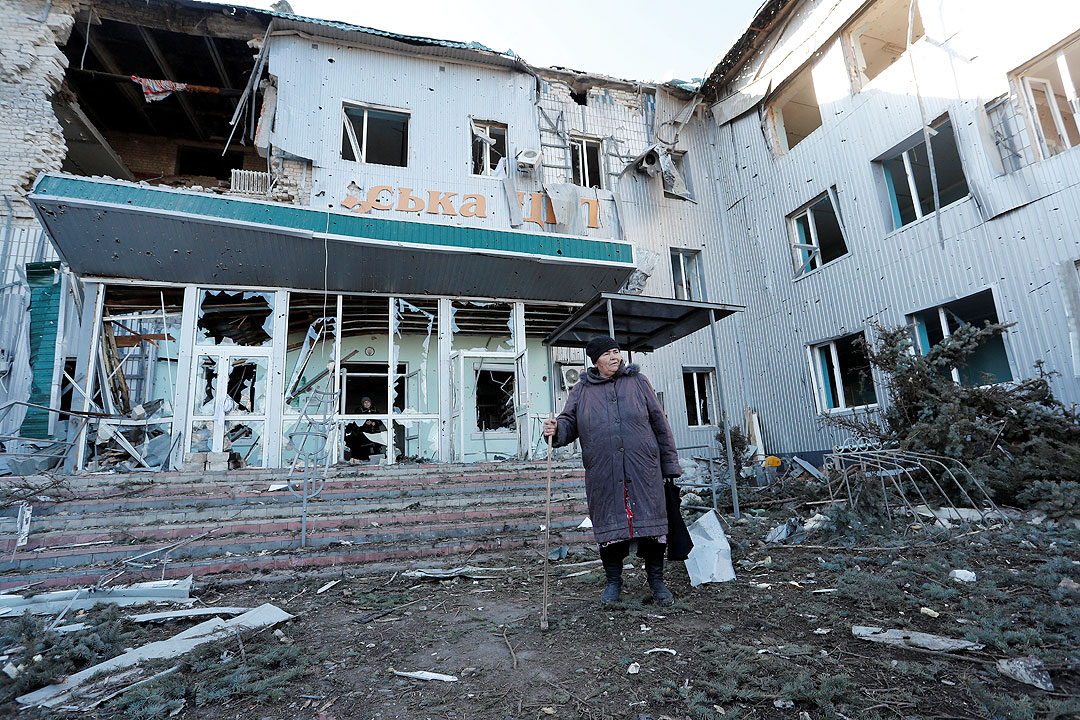
Medicine Cabinet
By Teodoro B. Padilla

The International Organization for Migration (IOM) has reported that more than 3 million people have fled Ukraine since Russia invaded the embattled country on Feb. 24.
One hundred forty-one countries, including the Philippines, voted in favor of a United Nations (UN) General Assembly resolution condemning Russia for invading Ukraine.
The armed attack against Ukraine has led to more than 2,421 civilian casualties as of midnight on March 20, according to the UN human rights office (OHCHR). The number of casualties is expected to rise as Russia continues its heavy shelling of cities cut off from humanitarian aid.
The European Federation of Pharmaceutical Industries and Associations (EFPIA), which represents research-based providers of medicines and vaccines, has condemned the invasion.
EFPIA is prioritizing efforts to ensure that medicines reach patients in Ukraine, European Union Member States, Russia, and other countries where access may be hindered by the war.
“This (war) affects people across the region, where families have members on both sides of the border, and where sons and daughters are called to duty in a war that only brings suffering and pain. War can never be accepted as the means of resolving conflicts,” said Hubertus von Baumbach, chair of Boehringer Ingelheim.
Pharmaceutical companies have joined other industries in strongly opposing the war. “We utterly condemn the intensification of fighting and the harm and suffering it’s causing to people in Ukraine and beyond. The actions taking place are in violent contradiction to our purpose, and unshakeable belief that all people should be treated with dignity, respect and humanity,” said GlaxoSmithKline in a statement.
Several countries have imposed stiff economic sanctions on Russia aimed at forcing Moscow to stop its unjustified attack on Ukraine. As the international community levied sanctions, those relating to medicines were excluded due to humanitarian considerations.
“Pfizer concluded that a voluntary pause in the flow of our medicines to Russia would be a direct violation of our foundational principle of putting patients first. Ending delivery of medicines … would cause significant patient suffering and potential loss of life, particularly among children and elderly people,” it said in a statement. On the other hand, Pfizer said that it will donate all profits of its Russian subsidiary to causes that provide humanitarian support to Ukraine.
As part of wider humanitarian efforts, pharmaceutical companies have rushed to donate 4.7 million doses of essential medicines and more than €28 million (P1.6 billion) in financial support for Ukraine.
Since supply is often expected to be hit by the war, Astellas said that it is ensuring on-going partnership and connectivity with suppliers, distributors and key stakeholders to help in efforts for continuous medicine supply for patients.
Meanwhile, Bayer released a first shipment of needed antibiotics and sterile medical items on request of the Ukrainian Ministry of Health. Despite the very challenging situation the products reached Ukraine, where they will support the medical supply for up to 27,000 patients.
AstraZeneca, for its part, donated 24 pallets of medicines, worth $3 million from its warehouse in Ukraine to its humanitarian relief partner Direct Relief, which is working directly with the Ukrainian Ministry of Health.
Johnson & Johnson, meanwhile, is donating $5 million to support the work of the International Rescue Committee and International Federation Red Cross and Red Crescent (IFRCRC) to provide humanitarian support for refugees in the border countries.
To support humanitarian aid in Ukraine, Merck Sharp & Dohme (MSD) announced it will donate €2 million to the German Red Cross. In efforts to address coronavirus disease 2019 (COVID-19) during the invasion, MSD will deliver 135,000 courses of molnupiravir to Ukraine and donate 100,000 courses of the drug through Direct Relief.
Novartis is also donating its inventory of essential medicines directly within the country, including antibiotics and painkillers from the Sandoz portfolio, for use in Ukrainian medical facilities. They are also working with the surrounding countries to supply medicines into Ukraine.
The Novo Nordisk Foundation, meanwhile, has provided €7.4 million to the efforts, including €700,000 to the UN High Commissioner for Refugees (UNHCR) to provide support and protection to people forced to flee their homes.
Sanofi also donated €5 million to the Red Cross for Ukraine and neighboring countries and to the UNHCR. This will support emergency access to necessities such as food, shelter, medicine, and security, and will help receive and assist refugees from Ukraine.
Roche, meanwhile, is also donating 150,000 packages of a critical antibiotic used to treat the symptoms of many kinds of bacterial infections and listed on the World Health Organization’s list of essential medicines. For its part, Takeda is donating $2.6 million to the IFRCRC, which is actively providing local humanitarian support to people displaced and impacted by the conflict.
In times of pandemic and war, the pharmaceutical sector is stepping up its work to bring life-saving medicines and vaccines to patients in need no matter how challenging and dangerous that may be.
Teodoro B. Padilla is the executive director of Pharmaceutical and Healthcare Association of the Philippines (PHAP), which represents the biopharmaceutical medicines and vaccines industry in the country. Its members are at the forefront of research and development efforts for COVID-19 and other diseases that affect Filipinos.